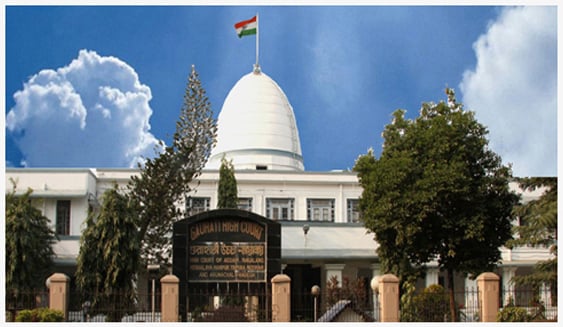The Gauhati High Court on Tuesday directed the trial court to take a decision on the application filed on behalf of the National Investigating Agency(NIA) for taking voice sample of and stayed the operation of order of 16th March, by which bail was granted to Akhil Gogoi.
The present appeal was filed by the NIA challenging the order whereby the accused Akhil Gogoi was granted bail and the application of NIA for extending the judicial remand upto 180 days in view of Section 43-D (2)(b) of UAPA was dismissed. The said proviso states that if it is not possible to complete the investigation within the period of ninety days, then the Court may if it is satisfied with the report of the Public Prosecutor indicating the progress of the investigation and the specific reasons for the detention of the accused beyond the period of ninety days, extend the period up to one hundred and eighty days.
It was the case of NIA that during investigation, it was revealed that Akhil Gogoi has an association with CPI(Maoist) which stands established from the statement of protected witnesses and that he and his associates in furtherance of criminal conspiracy to use the passage of Citizenship Amendment Bill in Parliament as an opportunity, with the intention to further the activities and agenda of CPI (Maoist), by arranging meetings secretly, and issuing instructions over phone to the co-accused members, blocked supplies and services which are essential to the life of community in India.
The appellant placed reliance on Gujarat High Court judgement passed in Kandhal Sarman Jadeja vs. State of Gujarat, 2012 Cri LJ 4165 wherein it was held that the order refusing to extend judicial remand is a final order and not an interlocutory order and by virtue of Section 21 of NIA Act the appeal is maintainable. The accused on the other side placed reliance on judgment of Gauhati High Court passed in Jai Kishan Sharma vs. Union Of India, 2020 (1) GLT 122 wherein it was held that an order rejecting extension of judicial remand is an interlocutory order and the present appeal was not maintainable.
As a result of conflict of law laid down by different court and there being no specific pronouncement from the Supreme Court, the division bench comprising of Chief Justice Ajai Lamba & Justice A.M.B. Barua formulated the following questions of law :
- Whether order refusing to extend the period of investigation up to 180 days in terms of Section 43-D (2)(b),UAPA can be construed as interlocutory order? Whether such an order would have any bearing on the proceedings of the trial itself?
- Whether such an order decides the right of one of the party?
- Whether the order “refusing” to extend judicial remand form 90 days to 180 days in terms of Section 43-D (2)(b) under the UAPA, would have any effect on ultimate decision of the trial ?
- Consequently, whether appeal against such an order would be maintainable under Section 21 of the National Investigating Agency Act, 2008?
The bench referred the questions of law to Chief Justice for constituting larger bench. Further, it was observed that without the voice sample, voice cannot be compared, which would be a critical piece of evidence. Likewise, data from Samsung Tablet is under scrutiny and translation. The accused is required to be confronted with the same. Considering serious nature of accusations matter requires exhaustive investigation. In such circumstance, right of investigating agency to investigate cannot be frustrated, in the interest of effective and fair investigation. Thus, the High Court directed the special NIA court to decide on the application filed by NIA for obtaining voice sample of the accused Akhil Gogoi.
The Court directed to list the case for further hearing immediately after the larger bench has answered the reference.
-India Legal Bureau


